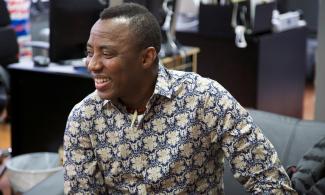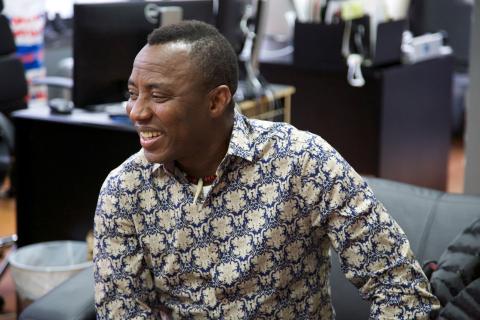
Many will (or might choose not to) remember that Omoyele Sowore raised the exportation of cannabis as a modern source of income worth exploring to combat Nigeria’s over-reliance on oil. At the time, he was mocked and reviled as a noise maker with no concept of the policies, plans and programmes required to effectively stabilise and grow an economy. Since that time, we have, as a nation relied on the oil prices – which have steadied at the bottom of the barrel; income from friends and family abroad – an annual amount conservatively pegged at $20 billion; and Ganduje’s voluminous agbadas as our main economic mainstays.

As Nigeria, aided by her leaders, slides ever deeper into poverty, corruption and inaction, other African nations are waking up, steering their own future by managing their government, their economy and their people effectively. Many of them are using the exact same techniques and policies that Omoyele Sowore, the presidential candidate for the African Action Congress party, and the convener of the Take it Back Movement, advocated for throughout his campaign trail.
It has emerged that Uganda is set to export medical marijuana products to Canada and Germany worth over $160m starting in June of this year. One of the main companies involved in the business deal has confirmed medical cannabis orders from at least 20,000 pharmacies in Canada and Germany.
"We signed annual supply contracts with pharmacies in Canada to a tune of $100m and €58m for Germany... the current contracts run for 10 years but along the way, we shall expand to satisfy future demand," Mr Cadet said.
Lesotho has also latched on to this new market opportunity; the country has signed a deal with a Seattle-based company and have been exporting the plant for three years.
Many will (or might choose not to) remember that Omoyele Sowore raised the exportation of cannabis as a modern source of income worth exploring to combat Nigeria’s over-reliance on oil. At the time, he was mocked and reviled as a noise maker with no concept of the policies, plans and programmes required to effectively stabilise and grow an economy. Since that time, we have, as a nation relied on the oil prices – which have steadied at the bottom of the barrel; income from friends and family abroad – an annual amount conservatively pegged at $20 billion; and Ganduje’s voluminous agbadas as our main economic mainstays.
For a year, Sowore clamoured for government to implement a dignified living wage for the lowest paid members of our society. He argued that the only way to steer people away from corruption and apathy and therefore galvanise the economy was to pay an honest day’s wage for an honest day’s work. The backlash was fierce. Many Nigerians – particularly those who benefited from the injustice and promptly awarded themselves large, immoral amounts at the end of every month – argued about the risk of inflation and the certain implosion of Nigeria should the most vulnerable workers be placed on the equivalent of $285 per month (Sowore’s proposed raise of N100,000) as opposed to their current salary of $51 per month.
In that time, South Africa has taken the same view as Sowore, with Ramaphosa signing into law a minimum wage bill for $250 per month.
All around us, African countries are waking up. In recent protests, a Sudanese woman stood courageously in the fight to take her nation back from septuagenarian despot, Omar Hassan Ahmad al-Bashir, and she and Sudan have emerged triumphant against tyranny.
Arab springs are erupting all over the continent; power deals that favour Africans are finally being brokered, but Nigeria, the once-giant of Africa, is about to swear back into office a president who spent one year and thirty-nine days of his first term abroad.
Freedom is never easy. It is certainly never given willingly, it is taken back by the constant strive for fairness, justice and egalitarianism. Omoyele Sowore has never wavered in his love for Nigeria; the battle will continue until Nigerians get the leaders they deserve.
Nigeria MUST progress.
Rachel Onamusi-Kpiasi
Director, PR, Media and Communications
Take it Back Movement